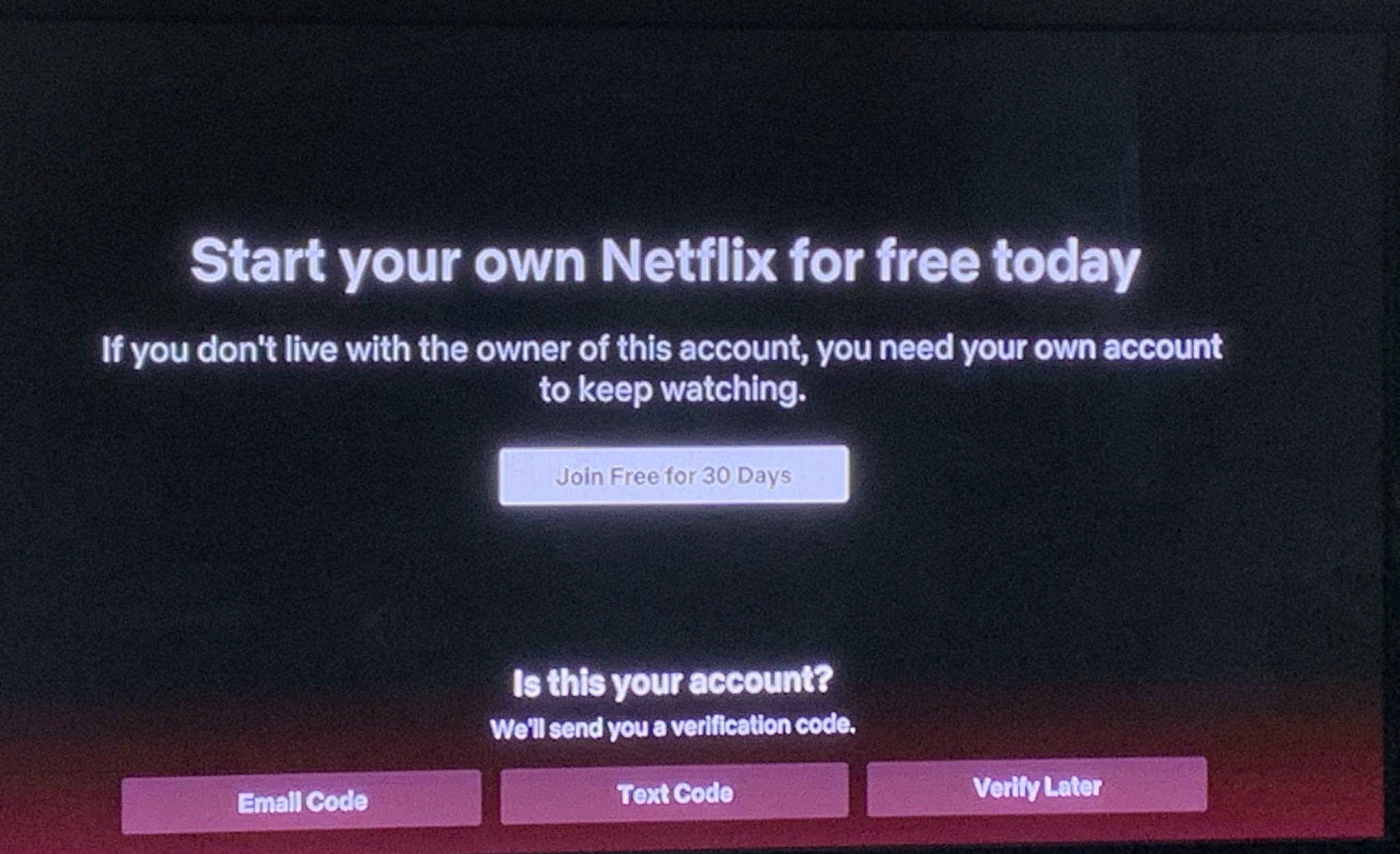Affiliate links on Android Authority may earn us a commission. Learn more.
Netflix test indicates account sharing could be coming to an end
Published onMarch 12, 2021

- Netflix could soon impose limitations on account sharing.
- The test is designed to ensure that people using a Netflix account belong to the same household.
For the longest time, Netflix has turned a blind eye to account sharing. Officially, the platform’s Terms of Service state that your account “may not be shared with individuals beyond your household,” but the rule has never been enforced. Now, it seems that the good ol’ days of account sharing are finally coming to an end.
First spotted and verified by folks over at GammaWire, Netflix is sending out a warning message telling streamers to create their own account if they’re not living with the primary account holder.
The test appears to be limited to a small group of users right now, but it shows that Netflix is at least considering the possibility of imposing limits on account sharing.
Users who are on someone else’s Netflix account are seeing the following pop-up message when they go to sign in:
If you don’t live with the owner of this account, you need your own account to keep watching.
The warning then asks them to verify if they are the primary account holder through a verification code sent by email or text. There’s also an option to verify later.
So far, those who have received this warning message have been able to get past it by selecting the verify later option. It’s also not that difficult to get the verification code from your buddy whose account you’re using, but it’s certainly not very convenient for all parties.
Interestingly, Netflix is also offering users a 30-day free trial within the notice. The streaming service had revoked this offer a long time back, but it’s one way of getting account sharers to sign up independently.
Would you sign up for Netflix if the service discontinues account sharing?
A Netflix spokesperson told The Streamable, “This test is designed to help ensure that people using Netflix accounts are authorized to do so.”
It’s not clear how the service plans to determine if users are in the same household. It might look at IP addresses and other identifiers to establish that, but hasn’t officially confirmed anything.
